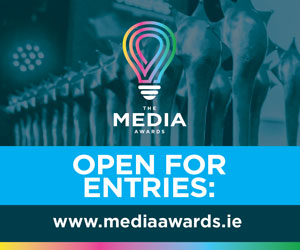
RTÉ has revealed details of a new neuroscience-based study which aimed to uncover how channel context can impact consumer’s subconscious reaction to advertising on TV, radio and online.
The broadcaster commissioned Neuro-Insight UK to undertake the study which involved the use of brain-imaging technology to measure people’s subconscious responses to communications they watched or listened to. The first study of its kind in the Irish market, it measured the brain responses of 240 people – all of whom were users of TV, radio and video on demand services – and looked at key metrics such as long-term memory encoding. The findings revealed that television programmes on RTÉ elicited levels of brain response that were 7% higher than the average benchmarks for TV programme viewing, and 10% higher than responses to the closest competitive channels in the Irish market.
In addition, the stronger impact of programming in an RTÉ context carried through to the advertising seen in that context – memory encoding response for the ads seen on RTÉ television channels were 11% higher than encoding of the same ads seen on competitor channels, and this was reflected in higher levels of conscious recall.
The study also revealed that radio advertising on RTÉ benefited strongly when executions from the same campaign had previously been seen on RTÉ television channels, performing 24% better across all key metrics than when heard in an unprimed state. The strong performance of TV adverts on RTÉ was setting up a condition where the brain was more receptive to linked advertising subsequently encountered on RTÉ radio, and this effect was much stronger than that seen for adverts that were seen on competitor TV channels and then heard on competitor radio stations.
In the online world, RTÉ Player strongly outperformed Facebook. There was a huge difference in exposure times, with adverts encountered on RTÉ Player viewed nearly 10 times longer than the same adverts on Facebook and, on top of this difference in viewing behaviour, the adverts on RTÉ Player elicited higher levels of brain response, with the all-important memory encoding metric being 31% higher.
According to Heather Andrew, CEO of Neuro-Insight UK: “The RTÉ study indicates the strength of its platforms, particularly in the way that they work well together. In this study, the powerful performance of ads on RTÉ in eliciting a strong memory response means they help create a strong, evocative brand room and, ultimately, a better chance of driving real world sales.”
“This study demonstrates that the positive brain responses to our quality programming carries on into commercial breaks and this is incredibly valuable for brands. Because of this, adverts shown on our channels have been found to be more memorable,” adds Geraldine O’Leary, Group Head of Commercial, RTÉ.




















